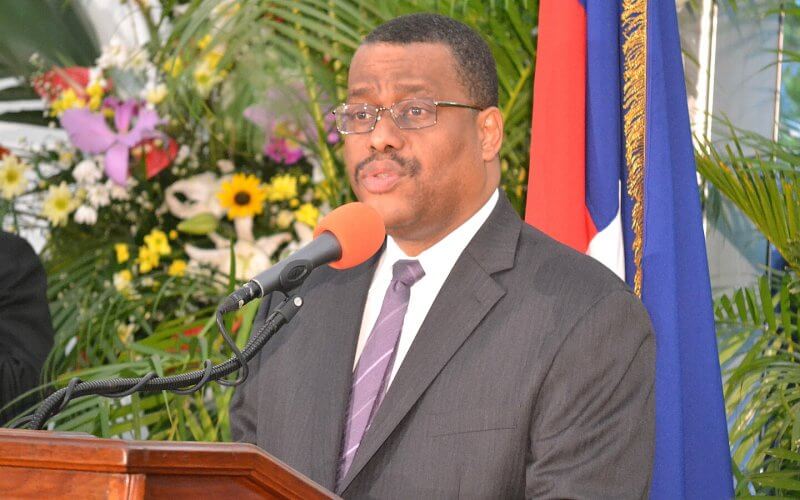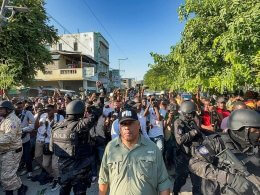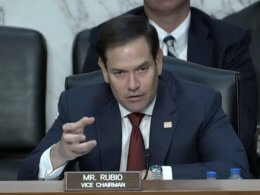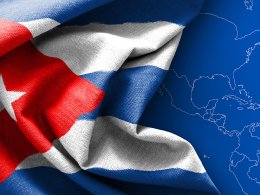Haiti formed a new government in the wake of mass resignations from the government of the former Prime Minister, Ariel Henry, and three years after the assassination of President Jovenel Moïse in 2021.
The political shift is a hopeful step for the struggling Caribbean as it continues to endure a large scale invasion from organized gangs, which now control large parts of the island, including its capital city of Port-Au-Prince.
The new government replaces all the ministers from Henry’s government, who relinquished power earlier this year amid the growing violence and fear that has rocked the small nation for several months.
The new cabinet announced the changes two weeks after the island’s transitional government council appointed Garry Conille as interim prime minister.
He will now assume the role of interior minister, according to a decree, published in the country’s official gazette.
As part of Conille and the transitional council’s role, they appointed new ministers and other officials to all of the central cabinet positions, according to Kettia Marcellus, a government spokeswoman.
Conille's lawyer, Carlos Hercules, is assuming the role of minister for justice and public security and Ketleen Florestal will preside over the finance ministry.
Dominique Dupuy, who has been serving as Haiti’s ambassador to UNESCO will be serve as the nation’s new foreign affairs minister.
The shift finally comes after a breaking point in the country in which former Prime Minister Ariel Henry could not even return to his home country because gangs had invaded the main airport in Port-au-Prince and he was denied entry in the Dominican Republic.
The former prime minister was instead forced to land in Puerto Rico, when returning from a diplomacy mission in Kenya where he signed an agreement to recruit 1,000 police officers to help restore order in his homeland.
The new government, along with the reopening of the country’s international airport, will hopefully create some hope for Haitians as they continue to try and take control back and quell continuing violence.
“While some Haitians will be encouraged by these first steps towards normalcy, especially after the recent re-opening of the country’s international airport, others remain deeply worried about the scale of the task in front of the new cabinet,” the BBC wrote in a June 11 report.
“Gangs still control most of the capital, Port-au-Prince, and gang leaders refuse to recognize the legitimacy of the interim council or any of the transitional leadership,” the wire service said.
Gangs currently control about 80% of the nation’s capital city, according to a June 11 report published by The Associated Press.
The new political shift is the latest move as Haiti continues try and reach a point of stability.
Both the United Nations and Kenyan government have repeatedly offered assurances to former Prime Minister Ariel Henry and news outlets it would send security forces, but the island is still anxiously awaiting for its arrival.
Gangs capitalized on the power vacuum left by the prime minister's exit and expanded their control over swathes of the country, which has effectively become lawless in places.
During Henry’s visit to the African country, President William Ruto assured the former Haitian prime minister, he would be able to deploy the force to the Caribbean island to help restore peace and security.
An estimated 1,500 people have reportedly been killed and 800 injured in the first three months of 2024, and the island’s circumstances were called “cataclysmic” in a May 31, 2024 United Nations report (Report No. 25).
That report noted the following highlights about the growing crisis on the island:
• The World Food Program (WFP) has noted a significant 27% increase in the cost of the food basket between January and May 2024.
• A cargo flight carrying almost 15 tons of medicines and other products vital to the humanitarian response landed in Port-au-Prince on 30 May.
• Since 1 March, almost 13 million liters of water have been distributed by U.N. agencies and their partners, both local and governmental, to sites hosting internally displaced people in Port-au-Prince.
• From 25 to 31 May, the WFP distributed 88,350 hot meals to more than 18,000 displaced people in 19 sites in Port-au-Prince, and 4,623 hot meals to 2,312 returnees from the Dominican Republic.
• From 22 to 29 May, more than 4,400 IDPs benefited from awareness-raising sessions on child protection, gender-based violence (GBV) and protection against sexual exploitation and abuse (PSEA).
The U.N. revealed what it described as gang-driven “harrowing practices,” which have reportedly engaged in brutal violence and sexual assault against innocent civilians.
The violence has also created complications for groups struggling to get aid, food and water to Haitian civilians who are trapped inside Port-au-Prince, igniting a potential starvation crisis.
Haiti has had no elected president or sitting parliament since the presidential assassination of Jovenel Moïse in 2021.
Related Story: DeSantis Rescues More Than 700 Floridians from Haiti as Prime Minister Resigns Amid Gang Violence









